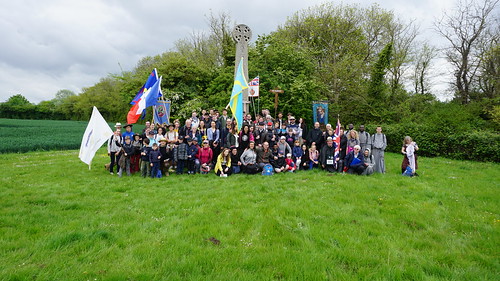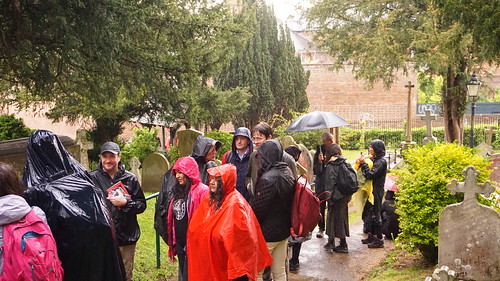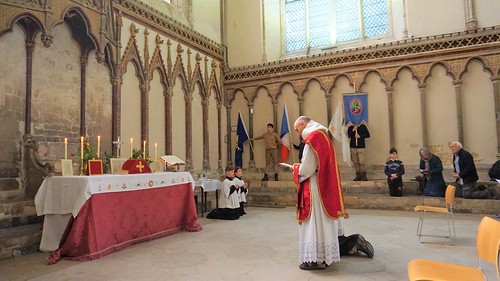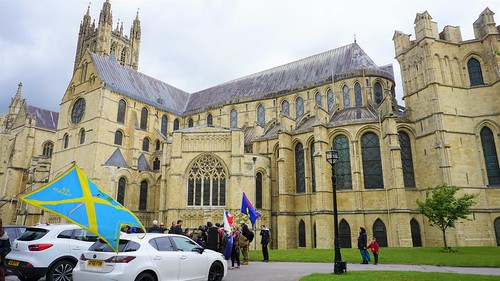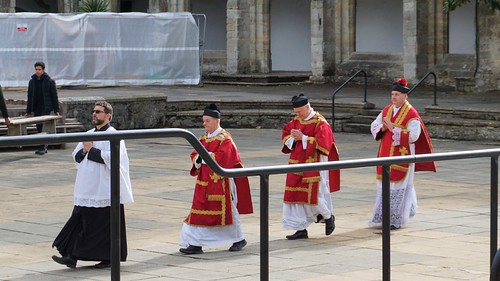Chairman's Blog
The Strange Survival of Conservative Christianity
Just over two years ago, Daryush Valizadeh—better known as known as ‘Roosh,’ the ‘pick-up artist,’ and enemy of feminism, who had slept with thousands of women and written ‘how-to’ books so other men could emulate this achievement—announced that he was reverting to the Armenian Orthodox faith of his upbringing. He renounced his past life, publicly repented his sins, and ‘unpublished’ most of his books. Many of them had been banned from Amazon anyway; you could only buy them directly from his website.
More recently, Milo Yiannopoulos, the gay alt-right provocateur who had tried—with varying success—to build a career from generating outrage, reverted to the Catholic faith of his own upbringing, declaring himself ‘ex-gay’ and ‘sodomy-free’ to the conservative Catholic website LifeSiteNews.
It is fair to assume that none of these four men have much interest in liberal Christianity. It is towards the beleaguered Helm’s Deep of conservative or traditional Christianity that they are heading. The embattled garrison may well have mixed feelings as this particular contingent of reinforcements crest on the horizon, but as their worst enemies would, perhaps, agree, they do need Jesus.These two individuals are—or (in their previous personae) were—among the most toxic and hated figures on the planet for feminists and others on the social-justice bandwagon. In a somewhat different category, though still heartily loathed by the woke Left, are Jordan Peterson and Laurence Fox. It seems increasingly possible that Peterson, a Canadian clinical psychologist who has won fame as a life-style guru, is moving towards belief in—and not just respect for—the Christian religion. The divorced actor-turned-campaigner Fox, in turn, who had been ‘cancelled’ for claiming that Britain is not a racist country, has revealed that he has become more ‘outwardly Christian,’ and says prayers with his sons every night.
The 'Managed Zone' of prostitution in Leeds closes
Since 2014, the local police and city government have allowed a slab of the city of Leeds in England to become a crime-ridden nightmare, in the forlorn hope that other parts of the city would benefit. This bizarre policy has finally been scrapped.
The U.K.’s laws against prostitution are far from satisfactory, but they do exist. It is illegal to solicit for paid sex, and this includes what is known as “curb crawling.” It is also illegal to “live off immoral earnings”, which outlaws brothels. The city council and the police of Leeds announced that these laws would not be enforced in a certain mainly non-residential area of the city between 8pm and 6am. The area was nevertheless heavily monitored — or so it was claimed — and the scheme cost the city and police around £300,000. It should have come as no surprise that the designated area, and increasingly areas around its borders, became a kind of enterprise zone for criminals engaging in rape, sex trafficking, drugs, and even murder. I hesitate to reproduce descriptions of what it was like, but a lot of physical cleaning-up had to be undertaken every morning at the city’s expense, the problems continued 24-hours a day, and people who lived nearby were far from happy.
Liturgy, Abortion, Doctrine: entwined crises
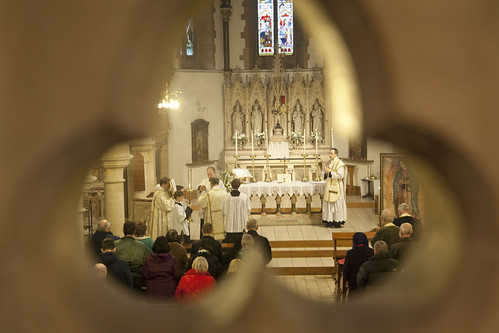 |
| Latin Mass Society's annual Mass in Reparation for Abortion, at the Shrine of Our Lady of Guadalupe in Bedford, 2019. |
The liturgy is the holiest possession of the Church: it contains God’s very presence, and those things most intimately associated with that. It is the frame for the familiar ways we engage with that presence, in the intimacy of our souls. What progressives were claiming, and continue to claim, is that the Church had got the liturgy seriously wrong, and had done so for more than a thousand years.
This message destroyed the faith of many Catholics, including many priests and religious. It was resisted by others, and this created a bitter internal conflict in the Church which is still continuing. For many Catholics who were not especially well-informed or ideologically committed, it simply caused confusion. Above all, for those inside and outside the Church, it did the opposite of what the Vatican II reforms were supposed to do. Instead of sending the Church on a renewed mission with greater confidence, it filled her children with self-doubt and made the Church look, to outsiders, disunited and unsure of herself.
Do Traditional Catholics deserve a good kicking? A reply to M.W. Davis
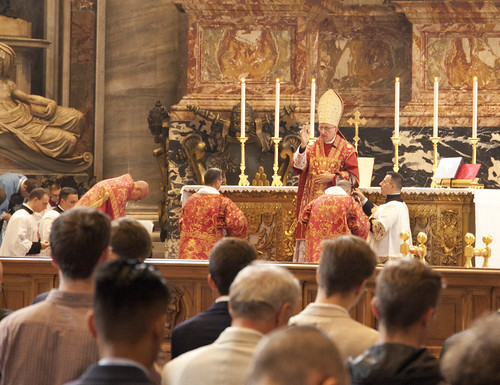 |
| Bishop Rey of Frejus (France) celebrating the EF in the Chapel of the Throne in it Peter's Basilica, Rome |
Michael Warren Davis has, again, attackedCatholics attached to the Church’s traditional Latin liturgy. His repeated, embittered criticisms of this particular group within the Church (see hereand here) are invariably motivated by a deep fraternal charity—so he tells us, anyway. The headline writer at the American Conservative, trying perhaps to discern exactly what the point of Davis’ article might be, subtitles it ‘Do liturgical dissenters deserve whatever sanctions the Vatican is preparing? Do they need them?’ The confusion between the two questions permeates the article. How are we to understand possible restrictions on the celebration of the Traditional Mass as something which is going to help the situation Davis describes? The maxim ‘Beatings will continue until morale improves’ comes to mind.
Davis shows that many Traditional Catholics (he refers to Michael Matt, Jeffry Tucker and Bishop Fellay of the SSPX) extended to Pope Francis much good will when he was first elected—as was only right, one might think. Then, he says, Traditionalists turned on the Pope, citing George Neumayr, Henry Sire, and Archbishop Vigano. But are the members of this second trio ‘Traditional Catholics’? If ‘Traditional Catholics’ are those with some discernible long-term commitment to the Traditional Mass, the answer is ‘no’.
Davis could have come up with different names, perhaps, but this mistake illustrates a problem with his analysis. At one point he says ‘ “traditionalism” these days is defined as much by its hostility towards Pope Francis as it is by love of the Latin Mass’. The way Davis takes this is that Catholics who criticise Pope Francis must be Traditionalists for that very reason, not the other way round. The great thing about circular arguments is that once you are inside one, no evidence can convince you that you are wrong.
The truth is more interesting. The most significant resistance to Pope Francis has come not from people associated with the Traditional Mass, but ‘conservative’ Novus Ordo Catholics. To the names just mentioned one could add the late Prof German Grisez, the Franciscan theologian Fr Thomas Weinandy, and Cardinal George Pell. Archbishop Vigano would never have risen to the position of Nuncio to the United States, nor could Fr Weinandy conceivably have become theological advisor to the US bishops, if they had been traditionalists. Pell is friendly to the Traditional Mass, it is true, but hardly a proponent of it. Not only have their positions given these men standing in the debates which have flared up during the present pontificate, but like many establishment conservative Catholics they have felt particularly motivated to react to Pope Francis’ demolition of the legacy of Pope John Paul II, a legacy with which conservative, as opposed to traditional, Catholics, tend to identify very strongly.
In this context, were Pope Francis to react to criticisms by placing restrictions on the Traditional Mass, this would seem a bit beside the point. Certainly, Traditional Catholics have often supported such criticisms, and made their own, but they are by no means the root of the problem from Pope Francis’ point of view. Indeed, given the tiny numbers and utterly insignificant public profile of Catholics attached to the Traditional Mass, I would say that their contribution to public debates in any particular direction must be almost completely irrelevant to the balance of forces in the Curia.
It is not clear, indeed, what impression, if any, Pope Francis has of Catholics attached to the Traditional Mass. Davis quotes Pope Francis talking about
‘certain “neo-Pelagians” who “feel superior to others because they observe certain rules or remain intransigently faithful to a particular Catholic style”—an obvious swipe at traditionalists’
Is this an ‘obvious swipe at traditionalists’? Perhaps Davis is unaware of Cardinal Ratzinger’s critique of the Novus Ordo collects as ‘Pelagian’, but he must realise that Pope Francis’ ‘rigid’ stereotype came with him from Argentina. It presumably derives from his experiences of hyper-conservative Catholic groups there, of which there are many; his main experience of Traditionalists before he became Pope was, after all, with the SSPX, with whom, as Davis himself says, he had surprisingly good relations. Certainly the ‘rigid’ stereotype would fit better the Novus Ordo-oriented Legionaires of Christ and some of the ‘New Movements’ than the Traditionalist Fraternity of St Peter, or the lay Una Voce movement.
Pope Francis, it is true, has applied the stereotype to traditionally-minded seminarians when prompted by interviewers, but it is clear on those occasions that he is looking for an explanation for the phenomenon, and reaches for one familiar to him. The idea that he has been influenced by English-language social media (‘bear in mind that Westerners’ experience of everything is mediated by the Almighty Screen’, Davis tells us solemnly) is simply ludicrous.
If Pope Francis is preparing some kind of slap-down for the Traditional Mass, it is not difficult to understand why this might be. He has been under consistent pressure to do something of the kind from influential bishops since becoming Pope, and has equally consistently resisted this pressure, even moving in the other direction as far as the SSPX is concerned. It may be that now, facing the crisis of his pontificate with the German bishops demanding concessions he knows he cannot make, he is tempted to give liberals something which he can give them. Pope John Paul II and Pope Benedict were in a similar position, torn between a pastoral concern for Traditional Catholics and the extraordinary hostility to it by many bishops, while trying to deal with an escalating crisis in which, in their view, the Traditional Mass was of no great significance.
We can still hope that Pope Francis will draw back from doing what the rumours suggest. We should pray that Traditional Catholics, who simply wish to worship as the Church has traditionally worshiped, in peace, are not victims of Church politics, which they can do so little to influence.
Support the Latin Mass Society
LMS Sponsored side altar at St Bede's, Clapham Park
John Arnell, a resident of Nunhead in South London and a member of the LMS, died on 17th May 2017. We have an annual Mass for all our deceased members, but frequently have additional ones for people of special importance, such as our late Patron, Colin Mawby, which we managed just before the epidemic made public liturgies difficult. We've fallen a bit behind with these and we had originally planned this one for Mr Arnell for a year ago.
Requiem aeternam dona ei, Domine; et lux perpetua luceat ei.
Promotional Video from Una Voce Scotland
This is nice.
Nice guys finish last?
A popular idea is that men who are desperate or deprived of chances for sex will be more likely to use coercion. This is known as the “mate deprivation hypothesis.” However, studies suggest the opposite is the case. Men who have more partners report higher levels of sexual aggression compared to men with fewer partners. Furthermore, men who predict that their future earnings will be high also report greater levels of sexual aggression relative to men who predict that their future earnings will be low.
One contributing factor may be an empathy deficit—the book reports that high status is linked to lower levels of empathy. Men high on Dark Triad traits are viewed as more attractive by women, are more likely to have consensual sexual partners, and are more likely to engage in sexual coercion.
Personal virtue is not very well correlated with ease of finding a soulmate. It may be only slightly correlated, uncorrelated, or even anti-correlated in different situations. Even smart people who want various virtues in a soulmate usually use them as a rule-out criterion, rather than a rule-in criterion – that is, given someone whom they are already attracted to, they will eliminate him if he does not have those virtues. The rule-in criterion that makes you attractive to people is mysterious and mostly orthogonal to virtue. This is true both in men and women, but in different ways. Male attractiveness seems to depend on things like a kind of social skills which is not necessarily the same kind of social skills people who want to teach you social skills will teach, testosterone level, social status, and whatever you call the ability to just ask someone out, consequences be damned. These can be obtained in very many different ways that are partly within your control, but they are complicated and subtle and if you naively aim for cliched versions of the terms you will fail. There is a lot of good discussion about how to get these things. Here is a list of resources that might be able to help you.
Of course, then you’ve got to have your resource list. And – and this is the part of this post I think will be controversial (!), I think a lot of the appropriate material is concentrated in the manosphere, ie the people who do not hate your guts merely for acknowledging the existence of the issue. Yes, it is interspersed with poisonous beliefs about women being terrible, but if you have more than a quarter or so of a soul, it is pretty easy to filter those out and concentrate on the good ones. Many feminists will say there are no good ones and that they are all exactly the same, but you should not believe them for approximately the same reason you should not believe anyone else who claims the outgroup is completely homogenous and uniformly evil. Ozy has tried to pick out some of the better ones for you at the bottom of their their anti-Heartiste FAQ, and Drew on Tumblr has added to the discussion.
New article on liturgical hygiene
Sergey Budaev, "Safety and Reverence: How Roman Catholic Liturgy Can Respond to the COVID-19 Pandemic" Journal of Religion and Health (2021), published 24th May 2021.
Among many interesting observations of this article, which cites a great many studies, is that while reception on the tongue does not appear to be more dangerous than reception in the hand, reception kneeling is clearly preferable to reception standing. We reproduce a key passage below; the whole article can be read here (or download the pdf here).
The Holy Species used in the Latin Rite is nearly dry and therefore is likely to have low adhesion of outside particles, further reducing the infectious risk. While receiving the Holy Bread, the communicant normally extends the tongue forward, requiring to hold breath for a while. This reduces possible respiratory output. The traditional manner of receiving Communion on the tongue is therefore unlikely to incur a high risk of infection transmission.
Traditional reverent practice of the Catholic Church incorporates additional elements making it even less risky in the current COVID-19 pandemic. The kneeling position of the faithful while receiving the Host would provide spatial distancing about 50 cm (Fig. 1a): the communicant’s face is located at the level of the chest of the Eucharistic Minister. Provided the communicant stays silent, uses nasal breathing, and the duration of the interaction is short (very few seconds), this would not incur a high risk to the Eucharistic Minister (usually the priest whose safety is prioritized, see above). Furthermore, reduced verbal response of the communicant directs the droplets and aerosol towards the chest of the Minister, which is by far a lower risk than in the face.
In contrast, the typical position of the communicant for Communion in the hand is standing which is the direct, close, face-to-face interaction (Fig. 1b). Any verbal interaction between the Eucharistic Minister and the communicant would direct the droplets and aerosol directly to the Minister’s face and the Holy Bread. Inhaling such aerosol could be risky. The statistical argument (see “” above) points to an increasing probability that in a large group, at least one member is infected, further aggravating the risk to the Minister. If the communicant happens to cough or sneeze, Minister’s face and the Holy Bread become the direct target of both fine and larger ballistic droplets. This is very unlikely in the kneeling position.
Another potentially important factor is that it would be much easier for the Minister to operate fine motorics when the communicant is kneeling than standing. This is due to a much better visual feedback and more convenient hand position when the communicant is kneeling (note that fine manual workers such as watchmakers use tables for routine work rather than stands elevated to the level of their eyes). This would make it easier for the Minister to place the Holy Host optimally and safely on the tongue, avoiding contacts with the mucous membrane and the saliva.
Even though the hands of the Communicant are often assumed to be clean, there is no guarantee. Again, the statistical argument (see above) points to an exponentially growing chance for at least one person with contaminated hands to occur as the group size increases. The typical position of the hands during the prayer—directly in front of the face—makes them susceptible to contamination by exalted and ballistic droplets and aerosol. The assumption that Communion in the hand carries no or little risk is not well grounded and may in fact create a false sense of security potentially provoking more reckless behaviour of both the Minister and the communicant.
Appeal for St Walburght's, Preston, from the ICKSP
The church of St Walburgh in Preston is an important part of the heritage of Catholics, not just of the immediate area but of the country. Now under the care of the Institute of Christ the King Sovereign Priest, it inevitably needs restoration to re-roof it and re-order - or un-re-order - the sanctuary. I recommend this appeal.
----------------------------
Canon Cristofoli of the Institute of Christ the King Sovereign Priest has launched an appeal to restore the beautiful, Grade 1 listed, St. Walburge’s Shine church in Preston, Lancashire to its former glory.
St. Walburge’s was built in the mid 19th century by the Catholic, Gothic revival architect Joseph Hansom, and is famous for having the tallest spire of any parish church in Great Britain. Howell and Sutton describe it as ‘one of the most extraordinary churches in Britain’. Bryan Little described it enthusiastically as ‘a building which ranks among Joseph Hansom’s best, and whose roof is perhaps the most masterly ever put on any Victorian Church’.
Following a diocesan reorganisation to cope with the falling numbers of priests and church attendees, St. Walburge’s faced being decommissioned and was given a seven-year stay of execution in 2008. St. Walburge’s would have closed if no other use for it had been found. The church was locked apart from one Mass per week and the future looked bleak.
After a time of reflection between the Rt. Rvd Michael Campbell, Bishop of Lancaster and Monsignor Gilles Wach, General Prior of the Institute of Christ the King Sovereign Priest, St. Walburge’s secured a new lease of life. Today, it is a centre for Eucharistic Adoration and celebration of the sacraments in the traditional Latin form beloved by saints and generations of Catholics. The traditional Latin Mass is celebrated daily and the congregation is growing as new people discover its timeless beauty and reverence.
 The years of neglect have taken their toll, however, on this remarkable monument to the faith and sacrifices of our forebears and the extreme weather we have experienced over the last few winters has accelerated the problems. The need for a new roof has become urgent if even worse damage is to
The years of neglect have taken their toll, however, on this remarkable monument to the faith and sacrifices of our forebears and the extreme weather we have experienced over the last few winters has accelerated the problems. The need for a new roof has become urgent if even worse damage is to
be avoided. It is raining inside in various places, including onto the unusual war memorial altar with its medieval crucifix. The heating system was removed because it was beyond repair, so the congregation and clergy are managing without adequate heating as winter approaches once more. Dry rot in the parish hall, a Grade 2 listed building, is also a cause for concern. The immediate need is for £500,000 to tackle the most pressing repairs.
In addition to the vital repair works, the Canons and people would like to restore St. Walburge’s to its former magnificence by reinstating the sanctuary with its fine marble altar rails to its arrangement before the reordering in the 1970s, improving the lighting and redecorating. The stunning Victorian stained glass is currently at risk and needs protection.
The Canons and people of St. Walburge’s would be very grateful for any help you can give to restore this remarkable church for the glory of God, and ask especially for your prayers for the success of this huge project. Thank you.
Link for joining the Friends of St. Walburge's:
https://www.goldengiving.com/m/Friendsofstwalburges
Link for the restoration appeal:
https://www.goldengiving.com/fundr.../st-walburges-restoration
Link for Easyfundraising:
https://www.easyfundraising.org.uk/causes/stwalburgescc/
Ramsgate to Aylesford walking pilgrimage: photos
Mass in the Shrine of Aylesford, celebrated by Canon Martin Edwards, assisted by Fr Basden (as deacon) and Fr Finigan (subdeacon).




